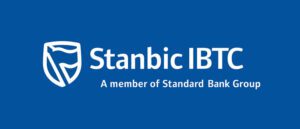
ProvidusBank, Mastercard, others launch contactless Tap-to-Pay transactions via smart devices in Nigeria
In a move to further reduce dependency on cash transactions, stimulate innovation and drive the growth of digital payments in Nigeria, ProvidusBank together with Mastercard, Interswitch and Thales Group, today announced the introduction of a new Tap-to-Pay service. The service allows cardholders to make fast, secure, and convenient in-store payments by tapping their NFC enabled smart device at any contactless-enabled payment terminal.
The solution works by enabling a connected device such as a smartphone or wearable device to act as a safe and secure payment method in the same way as a physical card.
Leveraging Mastercard’s Digital Enablement Service (MDES), and Interswitch’s tokenisation capability, ProvidusBank customers can enjoy a new level of convenience, no longer needing a card or a physical wallet during shopping trips.
For each transaction, Mastercard’s tokenisation and digitisation technology replaces Primary Account Numbers (PANs) with tokens to provide a faster, more secure, and seamless checkout experience while rendering card numbers useless to fraudsters.
“Technology has evolved greatly in Sub-Saharan Africa in the last decade with the mobile phone technology playing a significant role in that space. As a Bank, our collaboration with Mastercard and Interswitch to provide additional value through the mobile device is a strategy to leverage existing infrastructure, while delivering simplified payment through their advanced digital and tokenisation services,” said the Managing Director/CEO, ProvidusBank, Walter Akpani,.
All Mastercard transactions are made with industry-standard EMV-level security and are protected using standards-based payment tokens.
“The convergence of physical and digital commerce is not in the future, it’s happening now. At Mastercard, we understand that consumers want to make digital payments when, where and how they want, with the same protection and security offered with a physical card,” says Ebehijie Momoh, Country Manager & Area Business Head, West Africa at Mastercard.
“As a pioneer of mobile commerce innovation, we are excited to work with ProvidusBank to deliver a new payment experience that is both seamless and secure, in turn speeding the adoption of digital payments in Nigeria.”
Managing Director, Interswitch Purepay, Akeem Lawal, also commented on the collaboration. According to him, “With the increasing adoption of digital payments, there has been the corresponding need for players in the payments ecosystem to heighten the safety and security of payment platforms and channels. This notion is the underpinning rationale behind Interswitch’s collaboration with Providus Bank, Thales Group and Mastercard to deliver the tokenisation technology, providing an added security layer and ensuring safer and more seamless payment transactions. At Interswitch, we continue to leverage key partnerships that push the boundaries of innovation.”
To use the service, customers need to first digitise their card as a once off set-up by following instructions in their banking app. Once the card credentials are provisioned to a mobile device, a cardholder can tap to pay simply by opening their banking app, selecting NFC payments, tapping their phone at the Point of Sale and entering their PIN to complete the transaction. They can also make safe and seamless in-app and e-commerce payments.
Speaking in the same vein, Nassir Ghrous, VP Sales Banking and Payments Services at Thales Group, a global leader in advanced technologies said: “We are excited to bring our digital security expertise to bear in developing the tokenisation solution with innovators such as Interswitch, Providus Bank and Mastercard, to enhance the payment ecosystem in Nigeria. With EMV tokenization, the consumer’s actual 16-digit card number is protected from being exposed online during the transaction. The solution also allows Providus cardholders to benefit from contactless payment via their mobile devices, enjoying a full, easy and convenient ‘Digital Journey.”



